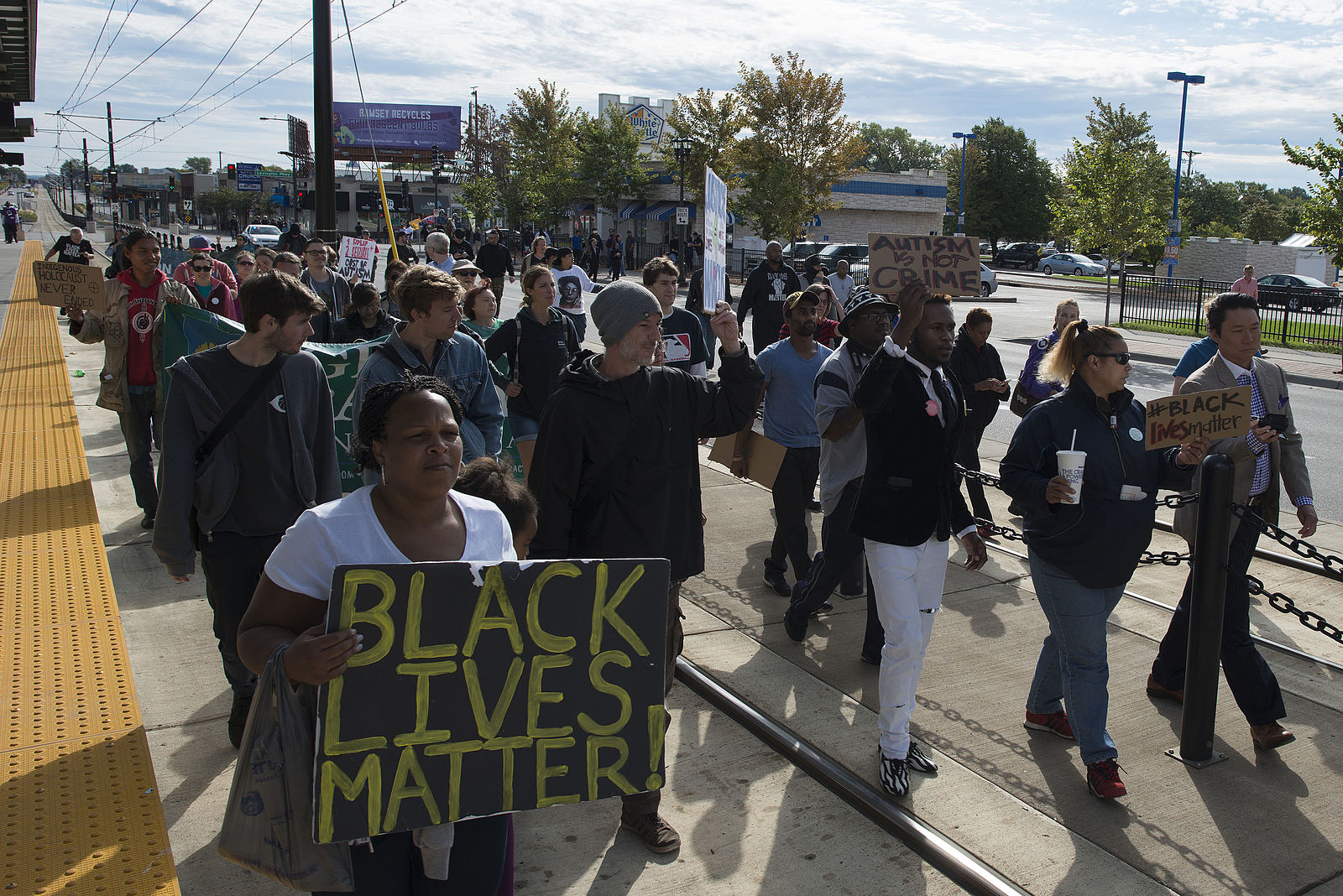When people think about subversive movements, they often associate them with marginalized groups or underground culture. When something subversive becomes mainstream and popularized it has the potential to lose its novelty and effectiveness. Commercialization can either be a detriment or a blessing to a movement. The subversive nature of the Black Lives Matter and gay pride movements exemplifies commercialization of non-mainstream concepts in different ways.
Black Lives Matter is a national organization that supports and rallies for the validation of black lives everywhere. It is described as an attempt to refuel the black liberation movement of the ’60s, having similar goals but using different methods to present the message. One of the main issues it tackles is police brutality. There have been many cases when unarmed black men, women and children have been unjustly killed by the police without justice served. The fights against unfair treatment from authority and racial injustices in general are central to the Black Lives Matter movement.
The movement itself is subversive because it makes a direct statement that, to many people, black lives are not valued, but black people will not allow that to be the case any longer. It openly points a finger at establishments and systems geared toward the downfall of black people, and tells these institutions outright it is not OK nor acceptable. What started as a hashtag has grown into a national effort to increase equality that can at least partially be attributed to commercialization.
Although some Black Lives Matter contrarians have taken advantage of the movement’s growing popularity with countermovements such as Blue Lives Matter, the organization has been able to reach audiences all over. This is thanks to items such as T-shirts, hoodies and pins touting the phrases “Black Lives Matter” or “Limitless Black Power.” This organization has worked to heal a wound the black community has been tending since black people were first brought to the U.S. The proceeds from these items on the website (blckstore.org) go directly to the official Black Lives Matter foundation in order to support its efforts in advancing the quality and quantity of black lives. Some may see this as profiting from the black struggle, but this ultimately goes right back into the fight against the racist structures that created this struggle.
Another movement that has been fighting against power structures for a long time is the gay pride movement. This movement is an attempt for gay people to reclaim their sexual identity and find pride in being who they are unapologetically. Those within the LGBT community have struggled with identity, familial and/or societal acceptance and coming to terms with who they are. They have to deal with actual enacted laws prohibiting them from loving who they want to love and living their lives as they choose. There are thousands of cases in which LGBT youth were bullied to the point of suicide or attempted suicide. These people have been told nonstop that who they are is wrong and unnatural.
This movement is subversive in that homosexuality and queerness have been frowned upon for a long time. People who identify with this community have been marginalized and ostracized mercilessly, so taking a stand against heteronormativity is akin to a slap in the face of injustice.
This movement has found itself mobilized with the sale of T-shirts, bumper stickers and other items featuring phrases such as “Gay Pride” or “It’s OK to Be Gay.” Though these items are often purchased from organizations not directly associated with the gay pride movement, their widespread wear helps normalize homosexuality and all of its facets. This commercialization of LGBT culture helps promote the positive message that being gay is normal and OK so those who struggle with identity can come to terms with who they are and who they love.
Often when people mention ideas or concepts that are mainstream or commercialized, there is a negative connotation. Though people need conformity to some degree, it is natural to want to go against the status quo. For those who live among the gray areas of life, often cast among the shadows, having something near and dear to them be blasted into the social sphere and marketed to everyone can be unnerving and uncomfortable. However, solace can be found in understanding the popularized spread of a subversive culture’s aspects can be a positive thing that helps the idea progress and influences the minds of people everywhere.
Hope Hynson is a sophomore English major. She can be reached at hopehynson@gmail.com.



